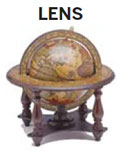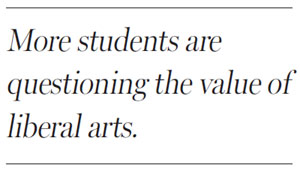Humanities prove a hard sell during hard times
Updated: 2013-06-30 07:36
(The New York Times)
|
|||||||

In the United States, a bleak job market and an emphasis on technology have pushed students away from subjects like philosophy, literature and history and into more "practical" fields like business, engineering, computer sciences and math.
Recent reports by the American Academy of Arts and Sciences and Harvard University have raised alarm over the decline in the humanities. Among the statistics: 7.6 percent of bachelor's degrees awarded in the United States in 2010 were in the humanities, compared with more than 15 percent in the 1970s. At Harvard, known for its liberal arts tradition, 20 percent of undergraduates majored in the humanities in 2012, down from 36 percent in 1954.
These reports suggest that the coming generation of Americans will lack the crucial inner development that the study of the humanities has provided for ages.
At least part of the blame for this shift, according to The Times's David Brooks, lies with educators themselves, who in recent decades have drifted away from the humanities' classical roots. At some point, Mr. Brooks writes, the humanities "turned from an inward to an outward focus. They were less about the old notions of truth, beauty and goodness and more about political and social categories like race, class and gender."
The message from outside the university walls is that the humanities and social sciences are now considered by much of the public as "a waste of time," Richard H. Brodhead, the president of Duke University in North Carolina and a co-chairman of academy commission, told The Times. "But this facile negativism forgets that many of the country's most successful and creative people had exactly this kind of education."

Those people include President Obama and Mitt Romney.
Despite the evidence of the usefulness of a liberal arts education, attitudes regarding them rarely change. "Parents have always worried when their children become English majors," The Times's Verlyn Kilinkenborg wrote. The persistent question - what is an English major good for? - is usually answered by time. "Former English majors turn up almost anywhere, in almost any career, and they nearly always bring with them a rich sense of the possibilities of language, literary and otherwise."
Some commentators wonder if the humanities are in crisis at all.
The most skeptical question the fundamental assumptions underlying this debate. Gregory Currie, a philosophy professor at the University of Nottingham in England, recently posed these questions in The Times: Does great literature make us better people? If so, how do we know?
Mr. Currie argues that we tend to accept unreservedly that reading the Great Books is good for us. "What we don't have is compelling evidence that suggests that people are morally or socially better for reading Tolstoy," or any other great author, he wrote.
When it comes to other people, "can you be confident that your intelligent, socially attuned and generous friend who reads Proust got that way partly because of the reading? Might it not be the other way around: that bright, socially competent and empathic people are more likely than others to find pleasure in the complex representations of human interaction we find in literature?"
Finding out whether this might be true, Mr. Currie writes, would take years of psychological research. "Meanwhile, most of us will probably soldier on with a positive view of the improving effects of literature, supported by nothing more than an airy bed of sentiment."
Peter Catapano
The New York Times
(China Daily 06/30/2013 page9)